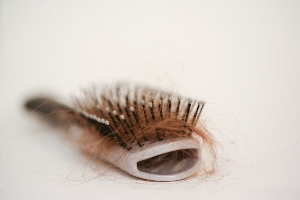If you're losing hair, you may have an iron deficiency.
A review of 40 years of research shows that iron deficiency has a much closer link to hair loss than most doctors realize. It may be the key to restoring hair growth, Cleveland Clinic dermatologists find.
"We believe that treatment for hair loss is enhanced when iron deficiency, with or without anemia, is treated," Leonid Benjamin Trost, MD; Wilma Fowler Bergfeld, MD; and Ellen Calogeras, RD, MPH, write in the May issue of the Journal of the American Academy of Dermatology.
It's a controversial issue. Not every study shows a link between iron deficiency and hair loss. Trost says there's not enough hard evidence -- yet -- to make iron-deficiency screening a routine procedure for people with hair loss.
But study researcher Bergfeld has been doing this for years. And she's finding that whatever the cause of hair loss -- for both women and men -- having too little iron in the blood makes it worse.
"What Dr. Bergfeld has found in decades of experience, is when she treats patients for iron deficiency --even in the absence of anemia -- it can maximize their ability to regrow hair," Trost tells WebMD. "It is not the silver bullet for baldness, but it can definitely help maximize how a patient regrows hair."
The Cleveland Clinic isn't alone in doing this. George Cotsarelis, director of the University of Pennsylvania Hair and Scalp Clinic, has studied iron supplementation in women with various forms of hair loss.
"From our clinic's experience, it is clear to me that if you replenish hair-loss patients' iron stores with iron supplements, they are more likely to regrow hair, or at least stop hair shedding," Cotsarelis tells WebMD. "And they don't have to be anemic. That is the biggest mistake doctors make."
An even bigger mistake would be for balding people to take iron supplements on their own. Unless you have iron deficiency -- diagnosed by a doctor -- iron supplements can lead to a very dangerous condition from iron overload.
 English
English فارسی
فارسی 
